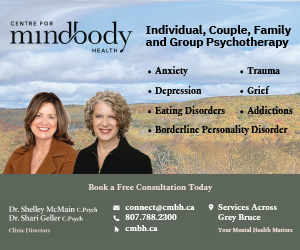The keys to a good sex life at any age are an open mind and a willing spirit.
by Jessica Wortsman // Photography by Roger Klein
“Learning and sex until rigor mortis.”
This famous declaration by Maggie Kuhn, founder of the Gray Panthers movement, was never more relevant than today. Kuhn was a revolutionary and radical activist who railed against the rampant ageism faced by older adults. After a forced retirement at age 65, Kuhn spent the rest of her life trying to break society’s stereotypes of the elderly, including the perception of them as sexless.
But sexless they are not. According to a 2018 University of Michigan poll, nearly two-thirds of adults aged 65 to 80 are interested in sex, and 40 percent are currently sexually active. This shouldn’t come as a surprise. Sexuality is a fundamental part of being human and the desire for pleasure and intimacy doesn’t have an expiration date. Just ask the Baby Boomers. As pioneers of the sexual revolution, these 57- to 75-year-olds now represent a quarter of the Canadian population, and they aren’t ready to give up their hard-won sexual freedom.
And why should they? Through life experience, they’ve likely gained the knowledge and skills to become better lovers. It’s what some researchers call “sexual wisdom.”
As well, says Collingwood sex therapist Lisa Pelletier, “One of the benefits of getting older is that we often care less about what other people think.” Furthermore, she adds, “Intimacy, sexuality and eroticism are ways to feel alive, especially as we face our mortality.”
But Maggie Kuhn’s words are more than just a battle cry for those entering their golden years; they’re a set of instructions for all of us on how to live a meaningful and satisfying life.
Here, in Southern Georgian Bay, fulfilment is what life is all about. For residents and vacationers alike, this is a place where lifestyle is a priority and pleasure is taken seriously. With our crystal-blue Bay, miles of beaches, trails and slopes, fine dining restaurants and a thriving art and music scene, we know a thing or two about enjoying the good things in life. Staying active and engaged is what we do best.
Still, according to Kuhn, it takes a little more to reach our full potential. To do that, she says, we need to keep learning. Albert Einstein agreed when he said, “Once you stop learning, you start dying,” and, though he was speaking figuratively, he wasn’t wrong.
From staving off dementia to improving cognitive age, the science is clear that learning new skills keeps the brain young.
Learning also requires us to remain open to growth, even in our sexual relationships. “Be curious about yourself and your partners, especially in long-term relationships,” says Pelletier. “Don’t assume you still know what your partner likes. Maybe things have changed.”
Active communication is key, she says. If you can bring honesty and lose the judgment, conversations can be opportunities for deeper connection. However, it’s not always as easy as it sounds. It may require letting go of rigid views of sexuality and relationships.
For some, that could mean exploring the grey area between monogamy and consensual non-monogamy. For others, it could mean navigating a partner’s shift in sexual orientation or gender identity. As Pelletier explains, “People aren’t fixed. Humans change over their lifespan.”
Learning also requires us to remain open to growth, even in our sexual relationships. “Be curious about yourself and your partners, especially in long-term relationships,” says Pelletier. “Don’t assume you still know what your partner likes. Maybe things have changed.”
Cultural norms change too. We used to view people as binary—male or female, gay or straight—but we’ve moved away from those limited, oppositional choices, because they just don’t reflect the diversity of reality. People are unique, and they can’t all be divided neatly into two categories. This societal shift toward diversity and inclusion has created some space for alternative relationship types as well. A recent University of British Columbia poll found that 20 percent of Canadians have been in an open or polyamorous relationship, and for another 12 percent, open relationships were the ideal. This may be a signal that monogamy has become something to negotiate rather than presume.
And what of sex until rigor mortis? Sexuality post age 60 can be exciting and fulfilling, but it requires an open mind and a willing spirit. Pelletier notes, “It’s important to have a more expansive view of what constitutes sex, because as we age, our functioning changes.” She encourages people to let go of expectations and focus instead on pleasure. Adds Pelletier, “It has to do with all of the senses. It’s not necessarily about what you do, it’s about where you go in your body. It’s a journey, not a checklist of things that have to happen.”
This less prescriptive view of intimacy is something author Marie de Hennezel calls “slow sex,” in her book A Frenchwoman’s Guide to Sex After Sixty. Akin to tantric sex, “slow sex” has partners focus on connection, rhythm and sensuality rather than on performance or orgasm. De Hennezel considers it a form of sexual mindfulness.
And if sex isn’t for you, no problem. Some people are simply not into it or reach a point in their lives when they’re done with being sexual. So long as this is accepted or negotiated within a relationship, and there isn’t an underlying cause for the lack of desire (like medication, pain or trauma), says Pelletier, then asexuality is a completely valid and healthy orientation. Besides, Kuhn’s advice for sex until death is not necessarily about the act of sex itself; it’s about keeping in touch with that part of yourself that feels pleasure. It’s about being connected to your own body, or even simply the act of just letting go.
So, what more should we be learning? For many of us, sex education focused almost exclusively on STI and pregnancy prevention and stopped the moment we graduated from high school. Yet, our need for accurate and relevant information about sexual health continues past adolescence. Learning about STI prevention is just as important at 70 as it is at 17. Being taught how to use a condom is just as important as being taught the most comfortable positions for sex during pregnancy.
In a society that has finally recognized the importance of discussing and supporting mental health, it’s time we do the same for sexual health. The only way to understand, embrace and enjoy our sexuality through all stages of our life is to talk about it.
If we take one message from Maggie Kuhn’s words, it should be that living is not just for the young. In fact, it’s only through our engagement with the world in all our many capacities— intellectual, emotional, social, and physical—that we truly live.
A sex therapist’s tips for a healthier sex life
Be kind to yourself and your partner(s). It’s hard to feel sexy if you’re bringing a critic into the bedroom.
Get off your phones and turn toward each other.
Keep a flexible view of what constitutes sex.
Talk to your partner(s). Be honest and don’t judge.
Give yourself permission to experience pleasure and take responsibility for it. Don’t wait for someone else to make you feel good.
Don’t wait for the right time, make time. People with satisfying sex lives prioritize it.
















